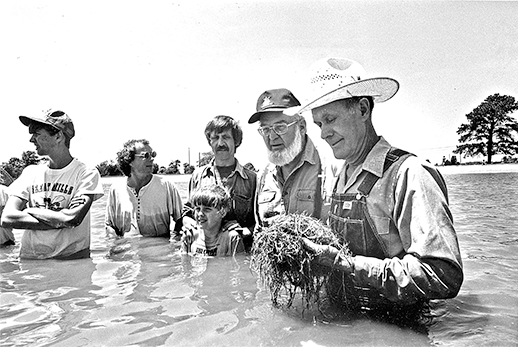|
July 2015 • Volume 14, Number 2

Photograph by Michael W. Fincham
|
Michael W. Fincham
How do science findings find their way into policy decisions? How do they affect the way we manage oysters and blue crabs and stormwater runoff and a dozen other tough issues? "There is no one recipe. Things happen in a whole variety of ways," says Don Boesch, long-time science adviser to the Maryland Governor's Bay Cabinet and president of the University of Maryland Center for Environmental Science. "They happen because of the strength and inconvenient truth of the science. They happen because of leaders. And they happen because of law, the legal process." The process can move slowly. But sometimes it can move quickly. more . . .
|
Leadership in the midst of environmental crisis can come from politicians and from scientists. It usually takes courage and commitment and close connections between politicians and scientists to turn science findings into workable political options. And sometimes it takes lawsuits. Along the Patuxent River a historic campaign to clean up the river began to pick up speed at a summertime softball game. more . . .
|
A young boy from Frederick, Maryland first learned about the Chesapeake when he made several voyages of discovery on a long-gone ferryboat. When the boy from Frederick became a U.S. senator from Maryland, he kept making boat trips and taking politicians and scientists along with him. The voyages of Charles "Mac" Mathias would play a major role in kickstarting a new drive to clean up the Chesapeake Bay. more . . .
|
Science findings often play a major role in designing policies to improve Chesapeake Bay management, especially during moments of environmental crisis. more . . .
|
While many Americans disagree with scientists' findings that climate change is largely man made, they are not down on science or scientists altogether. more . . .
|
Scientists at Maryland universities came out tops when citizens were asked whom they trusted most for information on climate change. more . . .
|
|